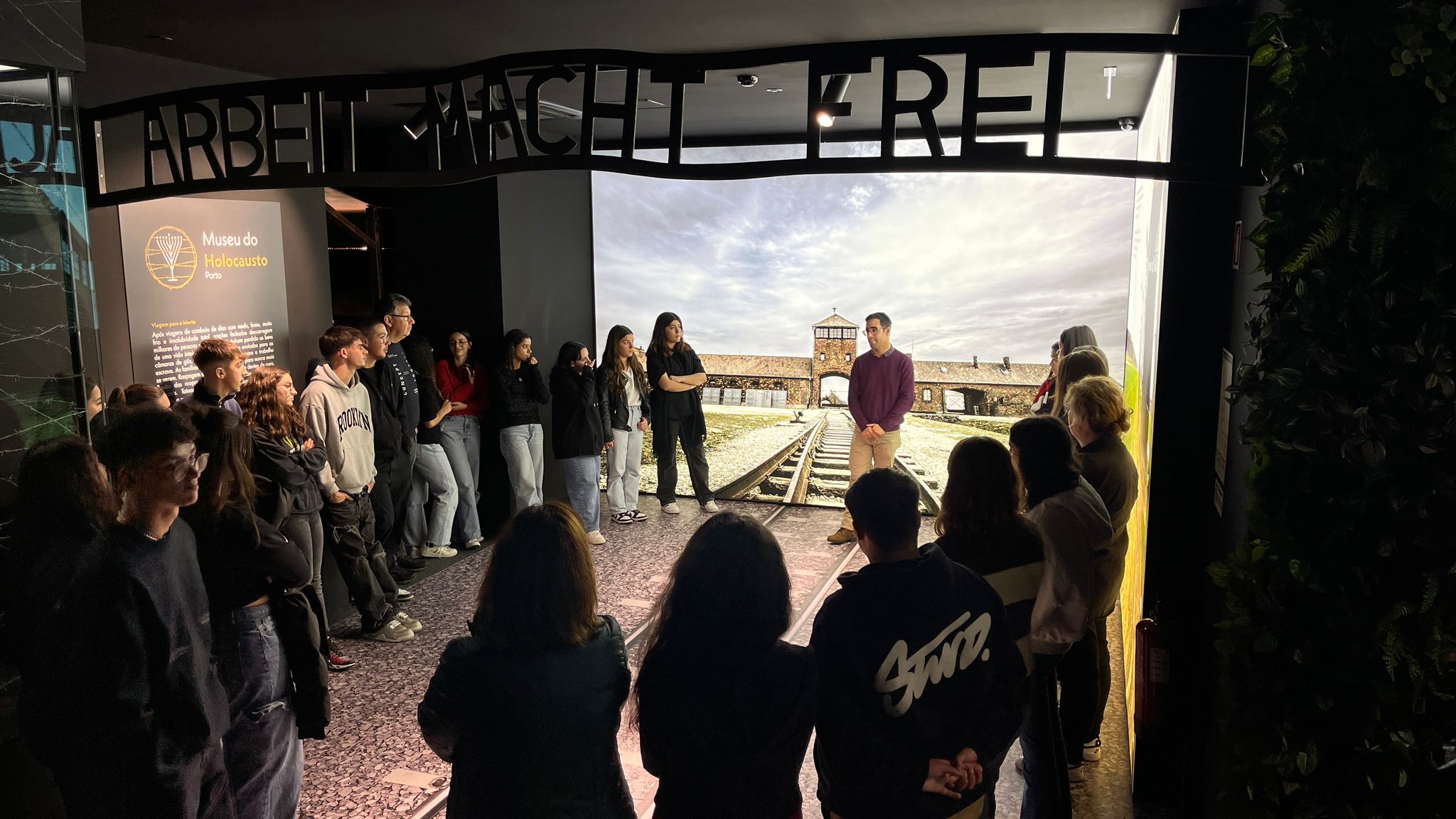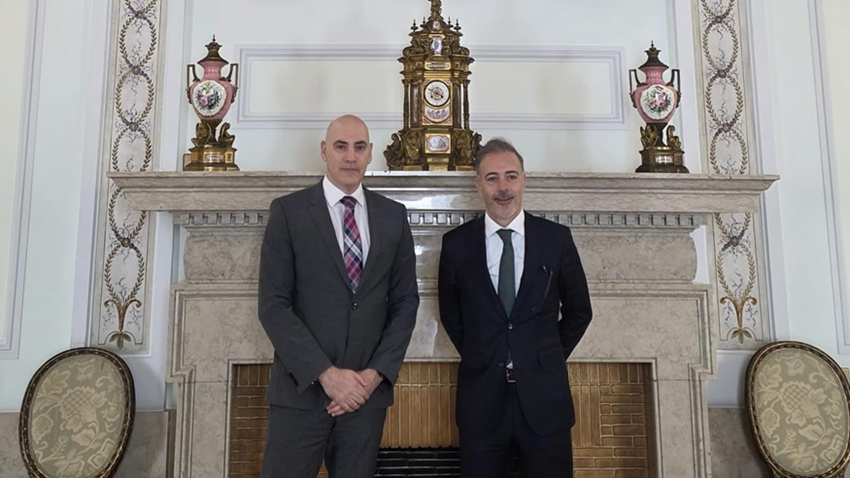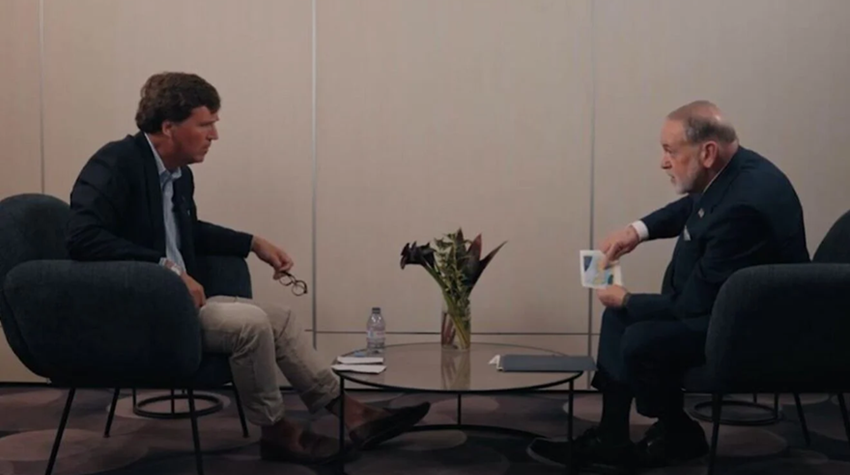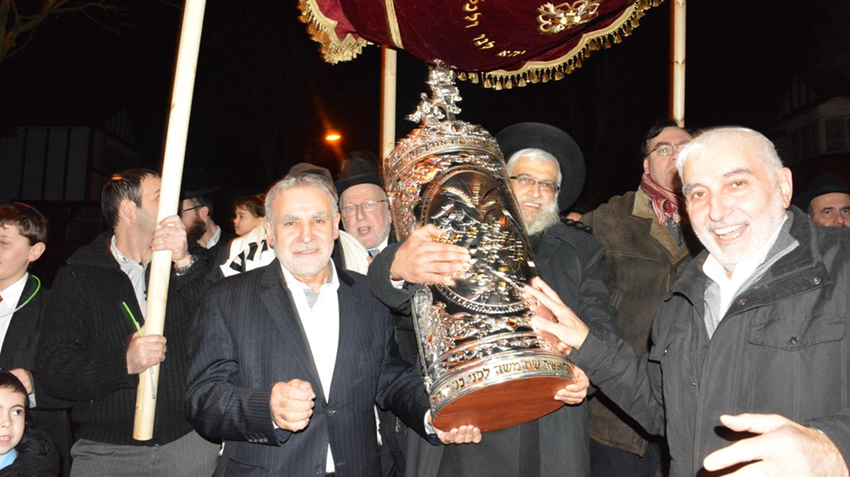The Holocaust Museum of Oporto was created in 2021 by the Community in partnership with B’nai B’rith International and with the assistance of Holocaust museums around the world. Over 150,000 students have already visited, making it one of the most frequented Holocaust museums in the world. Portugal has no more than one million teenagers in total.
In Portugal, school curricula are devoid of a filmic vision of what happened. They were politically instrumentalized to defend minorities in general and almost forget the Jews. But since 2021, the Holocaust museum in Oporto has practically monopolized teaching on the subject and the young students always have the opportunity to visit the reproduction of Auschwitz dormitories, as well as a name room, a flame memorial, and a cinema with historical footage.
"In this museum, we press the importance of having the children and teenagers asking how it was possible for this unspeakable tragedy to take place," said Gabriel Senderowicz, the President of the Oporto Jewish Community that built and runs this museum.
Indeed, the Museum is run and supervised by members of the Jewish Community of Oporto whose parents, grandparents and relatives were victims of the Holocaust and is part of a strategy to combat Antisemitism that already includes the Jewish Museum of Oporto, school visits to the Oporto Synagogue, courses for teachers, and history films.
Yesterday at the Holocaust museum, its director, Michael Rothwell, himself the grandson of grandparents murdered in Auschwitz, said "we have so many examples of the exponential rise of Antisemitism and the largest pogrom of Jews since the end of the Shoah to present. We are demonstrating that many of the events in the lead up to the Holocaust, like the preventing of Jews from entering universities, targeting Jewish businesses and wild conspiracy theories, that were prevalent then are once again showing their ugly heads and we have to be vigilant."
The visits to the Shoah museum and placing Antisemitism and the Holocaust into both a historic and a current context allows schoolchildren to better be prepared to dismiss and combat the lies and myths they hear and see, especially online.
Rothwell spoke about how the word genocide has been minimized and even appropriated by those who seek to attack Jews, including the massacre of October 7th. “We try and show those visiting our museum that the word genocide has an actual meaning and very real consequences, and should not be appropriated for ideological or political attacks. Today, the greatest systematic murder of Jews is being diminished by anti-Semites in order to belittle Jewish suffering and try and convert it into making Jews perpetrators.”, he added.
Curioulsy, on April 19, the Community released the free film "1506 - The Lisbon Genocide" which aims to show that the Shoah was not a singular event, but that Jews were victims of terrible pogroms, massacres and genocides throughout the Diaspora, especially in Europe and Eurasia. David Garrett, a jurist who is board member of the Jewish community of Oporto, recalled the Convention for the Prevention and Punishment of the Crime of Genocide of 1948 and Rome Statute of the International Criminal Court to say that “a genocide can be national or local and kill millions, thousands or even dozens of people. The deliberate murder, in whole or in part, of a national, ethnic or religious group in a city, so that none of its members remain alive, is called genocide, both etymologically and legally.”


































